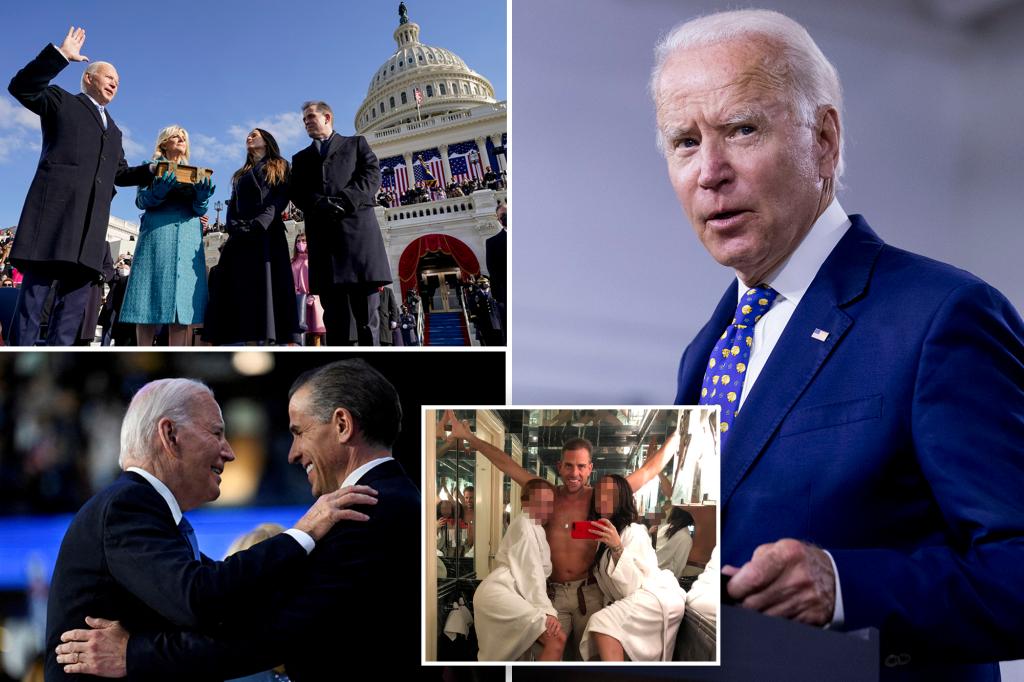In an initial heartfelt pledge made just before his inauguration, President Biden promised to restore values such as democracy, decency, honor, respect, and the rule of law. However, four years later, he faced significant scrutiny for his decision to grant his son, Hunter Biden, an expansive pardon covering approximately eleven years of legal issues. This move appeared to contradict Biden’s repeated public assertions that he would not intervene in Hunter’s legal troubles, despite the pressures surrounding the high-profile case involving Hunter’s gun charges and tax felonies. The conflicting messages between the president’s early promises and his eventual actions raised serious questions about his commitment to transparency and the rule of law.
The situation became particularly pronounced after Hunter Biden’s plea deal collapsed in July 2023, leading to significant legal challenges for the president’s son. White House Press Secretary Karine Jean-Pierre had previously insisted that President Biden would not issue a pardon, stating it was a personal issue for Hunter that was being handled independently by the Department of Justice. The implication was clear: the administration sought to distance itself from the proceedings, thus emphasizing the separation of powers while upholding the integrity of the judicial process.
As events unfolded, the stakes rose with the indictment of Hunter on counts relating to lying about his drug addiction during a firearms purchase, compounded by various other allegations involving tax evasion. Throughout this tumultuous period, the Biden administration consistently maintained that the president had made up his mind not to pursue a pardon for his son. Biden himself reiterated this stance during interviews and public appearances, emphasizing that he respected the judicial process and would abide by the outcomes of his son’s trials, regardless of the familial connection.
Following Hunter’s conviction in June 2024 for firearm-related charges, President Biden expressed both paternal pride and respect for the jury’s decision. He reiterated his position against any form of clemency, indicating that the legal proceedings should run their course without political interference. The White House continued to back Biden’s stance, with administration officials insisting that the president’s views on pardoning his son had not changed, even as pressure mounted due to his declining popularity and impending electoral considerations for the 2024 presidential race.
However, the narrative shifted dramatically after the president’s unexpected withdrawal from the 2024 race, resulting in speculation regarding possible changes in his approach to Hunter’s legal matters. In the months leading up to this decision, the White House assured reporters that there would still be no pardon, reinforcing the idea that the judgment surrounding Hunter’s case would remain independent. Yet, as Biden faced increasing pressure to support his son amid immense public scrutiny and electoral challenges, the administration’s firm denial of potential clemency actions began to falter.
Ultimately, in a surprising reversal, President Biden announced his decision to pardon Hunter, framing it as an act of justice against political persecution. He articulated his belief that Hunter had been treated unfairly by the justice system and suggested there had been a level of bias stemming from political opponents who instigated investigations. This decision not only contradicted a series of prior denials from the administration but also raised concerns regarding the integrity of the judicial system as perceived by the Biden administration. The White House’s messaging quickly shifted to clarify that while the president believed in the justice system, he felt it had been politicized in Hunter’s case. This apparent contradiction between Biden’s promises and actions marked a significant moment in his tenure, presenting a complex interplay between personal loyalty and the principles of governance.

